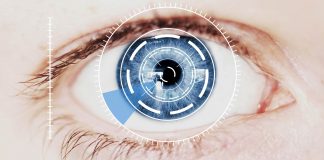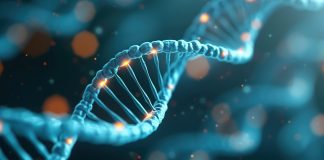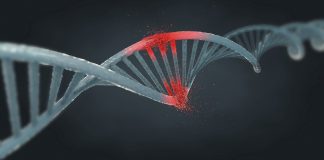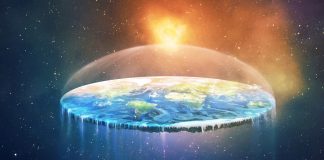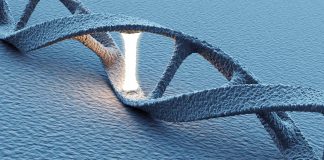The evolution of the eye
The eye's intricate structure has long been a focal point in the creationism vs evolutionism debate, serving as a key example in the argument of irreducible complexity. More recently, methods of simulating the evolution of the eye have emerged, which claim to provide significant support for Darwinism. Who is right?
Jason Padgett, the man turned math genius after an assault
Jason Padgett was exactly as one would expect someone who has no interest in school to be. He was only interested in parties and bars and was a magnet for both fun and trouble. That’s how he ended up being expelled, which didn’t affect him too much. However, getting beaten savagely changed his life forever, in the most unimaginable way possible.
Evolution and probability
At first glance, the idea that life could have emerged spontaneously seems to imply insurmountable probabilities. Indeed, simple yet accurate mathematical modelling reveals infinitesimal probabilities, regardless of the length of time available. So, how is the theory of evolution compatible with these mathematical arguments? Is the spontaneous emergence of life the only improbable aspect of the theory?
The driving forces of evolution
Even those least familiar with evolutionary theory know that it involves a powerful driving force: natural selection. However, as we delve deeper into the theory, we find that things haven't been that simple for a long time. This is because we no longer consider natural selection the sole engine of evolution, and from a certain point of view, not even the most powerful...
Science has proven that God doesn’t exist. True or false?
Marquis Pierre-Simon Laplace (1749-1827), a mathematician and astronomer and one of history’s most influential scientists, once had a meeting with Napoleon Bonaparte. Laplace came to offer the first consul of the republic a copy of his book, “Traité de mécanique celeste” (Treatise on Celestial Mechanics)—an analysis of the solar system that expanded on Isaac Newton’s conclusions.
Humans and chimpanzees
Is the chimpanzee the human’s closest relative in the animal world? According to the theory of evolution, the answer is a categorical YES. Specialised literature abounds in generous estimates of human-chimpanzee genetic similarity, ranging from 96% to 99%. But how are these percentages obtained, what assumptions do they hide, and what do they mean beyond the evolutionary interpretation?
Do you know how much your digital footprint costs? Lessons from a hacker who changed his mind
After I published the analysis regarding the mirage of cryptocurrencies, I received an irresistible invitation: an IT consultant offered to give me a demonstration, in front of the laptop, of the connection between cryptocurrencies and the black market. The exercise turned into a three-hour discussion on cybersecurity and ended with unexpected conclusions about identity theft for political purposes.
The microscope of theology versus the decalogue of science
The Jewish people walked on dry land in the middle of the water, not in the Red Sea, but somewhere in the Nile Delta. This conclusion by researchers from the National Center for Atmospheric Research and the University of Colorado (USA) made headlines on Reuters and the BBC in September 2010.
Two false oppositions: reason vs. faith and science vs. religion
"Intelligent, scientifically trained people no longer believe (or can no longer believe) in God."
Can we simulate evolution?
When a process is thought to be too slow or impractical to test experimentally, simulation science is a valuable tool for testing its validity.
God and the onion test
Humans have only a fifth of the genetic material of an onion, and slightly more DNA than a mouse. Why would the Creator of life use five times more genetic information for an onion than for a human? And why would He create humans to be only slightly more genetically complex than mice? Aren't long and aimless evolutionary processes a better explanation for...
Food and health with Dr Michael Orlich of the Loma Linda University Medical Center
When the founders of the Loma Linda University Medical Center in California laid the foundation, their purpose was somewhat paradoxical. Christians to the bone, and Adventists on top of that, they echoed the words attributed to the great reformer Martin Luther: “Even if I knew that tomorrow the world would go to pieces, I would still plant my apple tree.”
Why do some people believe the earth is flat?
Around 10% of Americans and 7% of Brazilians believe that the Earth is flat, that the moon landing was a hoax, and that those vaccinated against Covid-19 unknowingly received a microchip along with the vaccine. Several more percent remain uncertain about the veracity of official information.
Non-functional DNA: the playground of evolution?
It is commonly assumed that at least 96% of the genome of a multicellular organism has no functional role. A junk-dominated genome is the ideal place for evolution to randomly explore new functions and characteristics of the species. After all, who would ever think that a wise and all-knowing Creator would use 96% informational junk to define a human being or a mollusc?
Hope, a legacy of another world
Hope can be palpable and elusive at the same time, both reasonable and independent of logic. Yet this independence from logic is not synonymous with indifference to reason, but a victory over it. Hope has its own logic, one that changes lives for the better.












